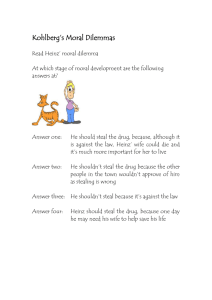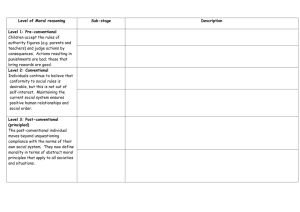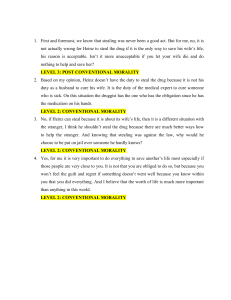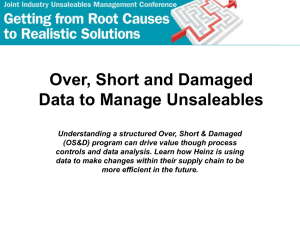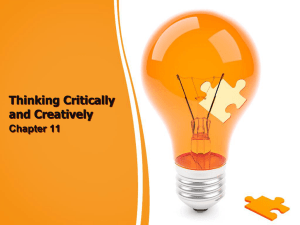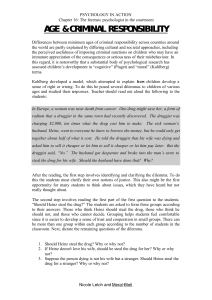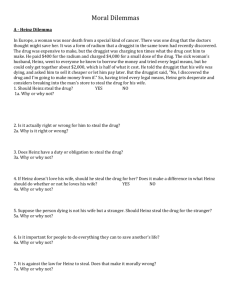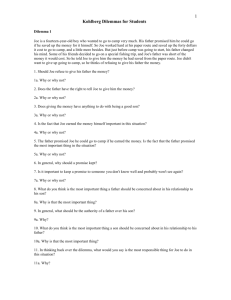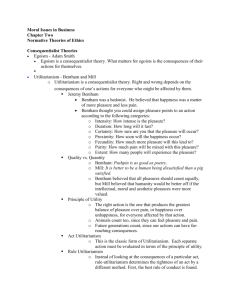Kohlberg - JonesatCMA
advertisement
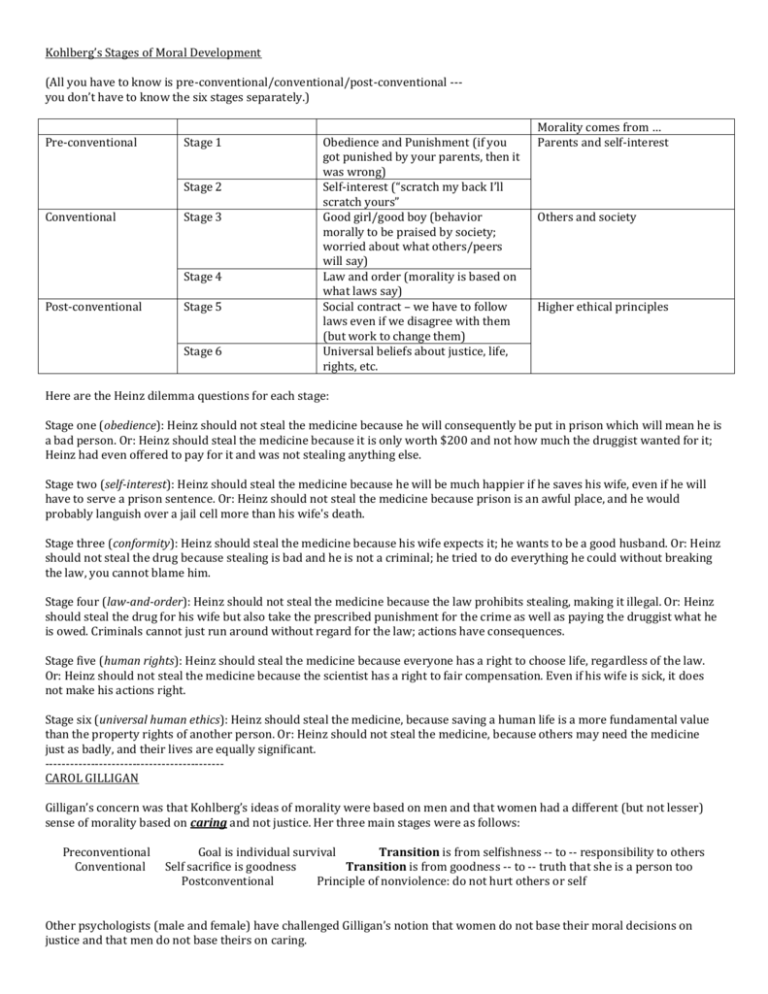
Kohlberg’s Stages of Moral Development (All you have to know is pre-conventional/conventional/post-conventional --you don’t have to know the six stages separately.) Pre-conventional Stage 1 Stage 2 Conventional Stage 3 Stage 4 Post-conventional Stage 5 Stage 6 Obedience and Punishment (if you got punished by your parents, then it was wrong) Self-interest (“scratch my back I’ll scratch yours” Good girl/good boy (behavior morally to be praised by society; worried about what others/peers will say) Law and order (morality is based on what laws say) Social contract – we have to follow laws even if we disagree with them (but work to change them) Universal beliefs about justice, life, rights, etc. Morality comes from … Parents and self-interest Others and society Higher ethical principles Here are the Heinz dilemma questions for each stage: Stage one (obedience): Heinz should not steal the medicine because he will consequently be put in prison which will mean he is a bad person. Or: Heinz should steal the medicine because it is only worth $200 and not how much the druggist wanted for it; Heinz had even offered to pay for it and was not stealing anything else. Stage two (self-interest): Heinz should steal the medicine because he will be much happier if he saves his wife, even if he will have to serve a prison sentence. Or: Heinz should not steal the medicine because prison is an awful place, and he would probably languish over a jail cell more than his wife's death. Stage three (conformity): Heinz should steal the medicine because his wife expects it; he wants to be a good husband. Or: Heinz should not steal the drug because stealing is bad and he is not a criminal; he tried to do everything he could without breaking the law, you cannot blame him. Stage four (law-and-order): Heinz should not steal the medicine because the law prohibits stealing, making it illegal. Or: Heinz should steal the drug for his wife but also take the prescribed punishment for the crime as well as paying the druggist what he is owed. Criminals cannot just run around without regard for the law; actions have consequences. Stage five (human rights): Heinz should steal the medicine because everyone has a right to choose life, regardless of the law. Or: Heinz should not steal the medicine because the scientist has a right to fair compensation. Even if his wife is sick, it does not make his actions right. Stage six (universal human ethics): Heinz should steal the medicine, because saving a human life is a more fundamental value than the property rights of another person. Or: Heinz should not steal the medicine, because others may need the medicine just as badly, and their lives are equally significant. ------------------------------------------CAROL GILLIGAN Gilligan’s concern was that Kohlberg’s ideas of morality were based on men and that women had a different (but not lesser) sense of morality based on caring and not justice. Her three main stages were as follows: Preconventional Conventional Goal is individual survival Transition is from selfishness -- to -- responsibility to others Self sacrifice is goodness Transition is from goodness -- to -- truth that she is a person too Postconventional Principle of nonviolence: do not hurt others or self Other psychologists (male and female) have challenged Gilligan’s notion that women do not base their moral decisions on justice and that men do not base theirs on caring.
